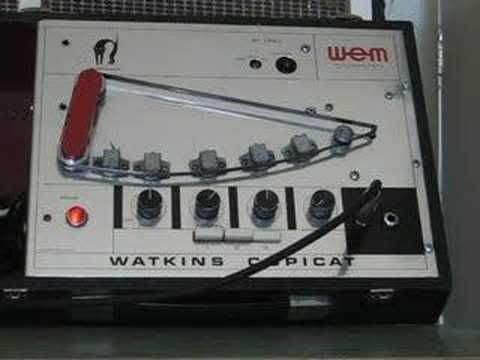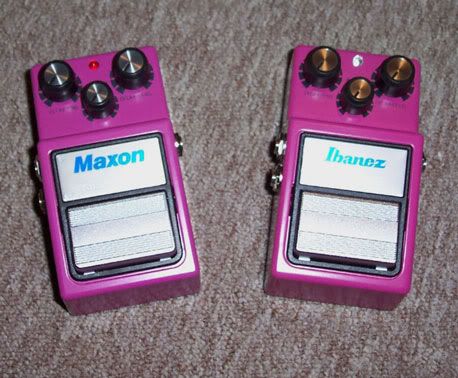Analogue delay is always admired for its warmth, depth and general tone. As with everything sound is subjective, it can provide all three of these. A clean sound can be given some good slice of colour with an analogue delay depending on what else is in the signal you put through the delay.
Analogue delays typically provide a range from doubling (makes two signals within milliseconds of each other to sound like two guitars playing the same part) to short echo repeat (an instrument in a bathroom) to weird spaceship noises (self oscillating repeats).
The reason the length and colour lie in the technology that is used, which is either tape (solid state or valve) or BBD chips.
In the tape method a set length of tape has the original sound recorded, spins round and is played back through multiple playback heads set at different volumes, this method is limited by the tape length. Since tape is a mechanical system it has many flaws. The tape itself wears out due to stretching and cannot be infinitely recorded onto. The motor spools need greasing, recording and playback heads need physically cleaning to keep it a clean moving and playing device.
Artists such as the Shadows and King Tubby are famed for tape delay and most people would agree for the sounds you can produce it’s worth it.
A note on Valves verses Solid State.Valves are a predecessor to modern day transistors. They are vacuumed glass tubes that provide warmth not found in modern day electronics. The flaws with valves is they get very hot and need to warm up before operating correctly, can draw a high current, are made of glass (therefore easily broken if dropped), they have low tolerance than transistors so more easily broken and old new stock originals would be hard to come by however several manufacturers make new copies. Basically valves are now for their warmth and colour, whereas Solid State Transistor technology will last longer is less likely to break but will be 'colder'.
Watkins Copicat, Echoplex and Roland’s Space Echo are prime examples of out of production tape echos.
Fulltone now produce a tape echo box, which is agreed to be one of the best new production tape echos however you will pay out the ear for it, for those with smaller wallets and not bothered with tape cutting an Akai E2 will provide you with a digital emulation of tape sounds.

In the BBD (bucket brigade device) Chips it is limited by the amount of signal the chip can store, typically 330 milliseconds.
With BBD’s there is also upper frequency cut off which causes a phenomena know as aliasing whether the processing upper frequencies get confused and mix giving strange sounds, so manufactures use a low band bypass to make sure aliasing doesn’t occur and ruin your well crafted sound. However unlike tape there are no moving parts apart from the obvious (level knobs and footswitch) so less to maintain and go wrong.
According to an article on the Analogman website the BBD chips a manufacturer chooses for a pedal and the end configuration are also important.
Many companies use a cheaper 3208 chip which supplies 330ms of delay however its upper limit for sound use is really 160ms, since above 160ms a high pitch noise becomes apparent. This can be limited by adjusting internal variable resistors to attempt to get the highest delay without a high pitch sound, however due to the speed of production lines verse end line testing this rarely gets done hence the rise of boutique delays, which are tailor made, lovingly tested but you pay for this too.
Analogman suggested the 3205 BBD chip can reduce whistling, which is no longer in production, but does feature in the Maxon AD9, Boss DM2/DM3 and Analogman version of the Daphon Delay. All command a high value, however the AD9 has come back into production and could be bought for about £100 new.

On a continued note the Philips corporation who produced the majority of the BBD chips for sound use stopped manufacture some years ago, in 2007 ‘Visual Sound’ has commissioned the re-manufacture of Philips patented 3102s and 3207s, which explains why more analogue delays are suddenly available at cheaper rates again.
Fini.

No comments:
Post a Comment